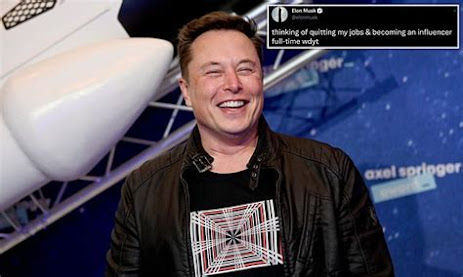By Joshua Omoniyi
In recent months, a significant wave of opposition has emerged against tech mogul Elon Musk’s expanding influence, with critics and public figures increasingly calling for his resignation from various leadership positions. The controversy has reached new heights as concerns about his control over critical infrastructure and management style continue to grow.
At the center of the storm is Musk's involvement with the U.S. Treasury's federal payment system, a development that has sparked intense debate. The hosts of The View recently voiced strong opposition, arguing that Americans should be "enraged" about this federal takeover. Their primary concern centers on the implications of having a private tech billionaire with access to such sensitive financial infrastructure.
The scrutiny extends beyond governmental concerns to Musk's controversial management practices. His advocacy for a grueling 120-hour workweek has drawn sharp criticism from labor experts and industry observers, who question the sustainability and ethical implications of such extreme workplace expectations. This management approach has raised serious concerns about employee well-being and work-life balance across his various enterprises.
X (formerly Twitter), under Musk's leadership, has become another focal point of controversy. Users are increasingly questioning their continued presence on the platform, with many considering departure. The platform’s changes and Musk's management decisions have led to growing user dissatisfaction and calls for new leadership.
The situation has created a complex web of concerns spanning both private and public sectors. Critics argue that the concentration of power in Musk's hands — from social media to government infrastructure — poses significant risks to public interests. His simultaneous control over multiple influential organizations has sparked debate about potential conflicts of interest and the need for greater oversight.
Industry experts note that Musk’s leadership style, characterized by bold decisions and controversial statements, has contributed to the growing pushback. While supporters praise his innovative approach and vision, detractors argue that his management methods and expanding influence require urgent reevaluation.
The calls for Musk's departure from various positions represent a broader societal debate about the role of tech billionaires in critical infrastructure and public services. As pressure continues to mount, stakeholders from various sectors are closely monitoring the situation, with some suggesting that significant changes in leadership may be necessary to address these concerns.
The controversy shows no signs of abating, as more voices join the chorus calling for accountability and change. Whether these growing pressures will lead to actual leadership changes remains to be seen, but the debate has already sparked important discussions about power, influence, and responsibility in both the corporate and public sectors.
As this situation continues to evolve, the coming months may prove crucial in determining the future of Musk’s various leadership roles and the broader implications for corporate governance and public oversight in an increasingly interconnected world.




.jpeg)








1 Comments
Wow... Informative
ReplyDelete